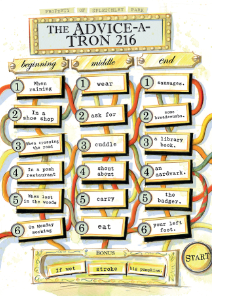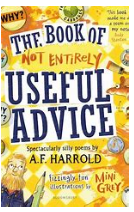The Library Corner - March 2024

By Mrs Campling, the School Librarian
This spring term has seen us return to a fortnightly library schedule, where each year group has a designated day to visit the library to change books or take part in a library lesson. This has been a positive shift and has enabled us to better support children who struggle to find a book or are overwhelmed when choosing independently. We have been working alongside teachers too to find ways to support more reluctant readers and find stories (or fact books!) that they can engage with and enjoy.
At the very start of the term (way back in January) we revisited the library behaviour expectations, taking part in a number of games designed to practice the key rules: use library voices, and respect the books. All classes really enjoyed this and demonstrated excellent listening skills whilst following verbal instructions to draw a cat; as well as building a ‘perfect bookshelf’ where books can be happy and thrive - far away from puddles and careless feet! I was really encouraged that all our children at OWPS understood the importance of showing respect to the shared resource of books as well as how to recommend and share books with each other.
After the February half term we were very busy with this year’s World Book Day activity, CSI: Library, which you can read about in the World Book Day roundup from earlier this month.
We’ve also had a number of Reading for Pleasure sessions where children have had the opportunity to either read to themselves, hear a story, or a portion of their class read. There are few things more satisfying to a school librarian than a library full of children all happily reading away (except maybe if I also had my nose in a book!). KS1 Library Club has also been running this term, with a handful of Year 1s attending to read, colour, or do bookish jigsaw puzzles together.
Don’t forget you can follow us on social media to see what we’re getting up to in the library!
World Poetry Day
This week was World Poetry Day; a day established by UNESCO to support “linguistic diversity through poetic expression” and celebrate languages and dialects from across the world. Mr Marks introduced the day in his assembly and shortly after the library was inundated with children keen to browse and borrow from our collection of anthologies! Poetry can at first glance seem like a difficult and unusual form of literature - it doesn’t follow learned rules of storytelling or narrative language and its dependence on wordplay and imagery can be off-putting to those who like writing to be plain.
For children, the appeal of poetry is largely in its unconventionality - childrens’ poetry can be daft, silly, and play with language in ways that appear to break the rules. My current favourite daft poem is ‘Duck Soup’ by AF Harrold, which Year 2 enjoyed hearing (along with a few others) during their library session, from ‘The Book Of Not Entirely Useful Advice’. We also had a few goes with the Advice-o-Meter which provides such gems as “In the supermarket, sing about kittens” and “On Thursday, talk to the Queen”.

Poetry also has a great appeal for reading and oratory confidence. Leaning into the rhythm of a poem and reading it aloud enriches our experience of it and can increase our confidence in reading altogether; in a poem, it doesn’t matter if you need a few tries to find the cadence of it, and ‘fun’ poems can encourage vocal experimentation - a sense of almost tasting the words, before spitting them out.
As we get older, poetry becomes more than just silly fun. What I have loved about poetry since my early teens is that it has reflected the tangled mess that life can be; there are things within it to be figured out, and if it doesn’t make sense then phew because I’m not sure the world makes sense all the time. It provides a mirror for us to look into and reminds us that sometimes we won’t find a clear meaning or answer. My favourite poet, who I studied at sixth-form, is Seamus Heaney. His poetry is very down-to-earth (quite literally, see ‘Digging’ or ‘Blackberry Picking’) but skilfully turns the unremarkable into something remarkable, giving great significance to everyday things like driving to the coast, or peeling potatoes. He was not afraid of writing politically either, particularly about events from Irish history, and in his own lifetime. Sometimes what we need isn’t a lot of answers, or a clear link, but something messy and meaningful that says: yes, life doesn’t always make a lot of sense, but isn’t it beautiful as well?
Recommended Reads
In honour of World Poetry Day, this half-term’s recommendations are all poetry books!

The Book of Not Entirely Useful Advice by AF Harrold & Mini Grey
This is my current favourite children’s poetry collection! It contains a real mixture of daft (‘Duck Soup’) and profound (one particular poem about climate change is written with letters gradually disappearing), and Mini Grey’s illustrations are always so full of character. They are the perfect pairing! As the title suggests, the poems are largely ‘advice’ and it also contains interactive elements like the Advice-o-Meter and space to write your own poem.
Poems Aloud by Joseph Coelho
Joseph Coelho has, as a poet, unsurprisingly had a real focus on poetry during his current tenure as Children’s Laureate. His online Poetry Prompts have been a fantastic way to inspire and give children the skills to experiment with writing their own poetry (my own children have enjoyed practicing some of them, and they can be found at: Poetry Prompts library | BookTrust). Poems Aloud comes with specific suggestions about how to use your voice to read or perform each poem, thinking about expression, dynamics and other sound effects that you can create!
A Great Big Cuddle by Michael Rosen & Chris Riddell
Poetry recommendations would be incomplete without the beloved Michael Rosen. There is a reason that his poetry has been a staple in primary schools for so long and that’s because he is brilliant! A Great Big Cuddle is the perfect introduction to poetry for young children, both pre and post learning to read. Chris Riddell’s illustrations add a fairytale element to the poems and together it is a quintessential image of an idyllic early childhood.
Photo by Luisa Brimble on Unsplash

